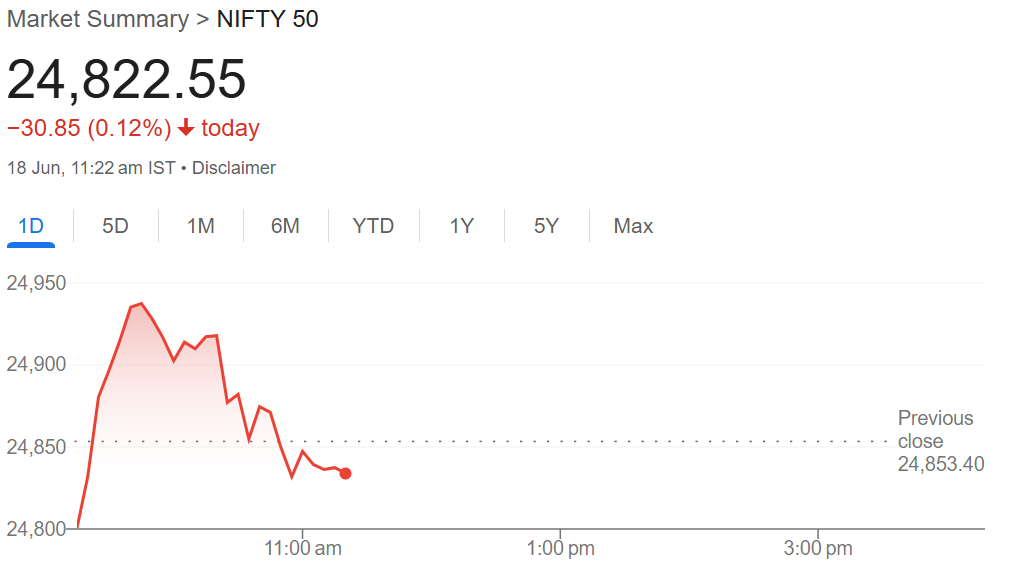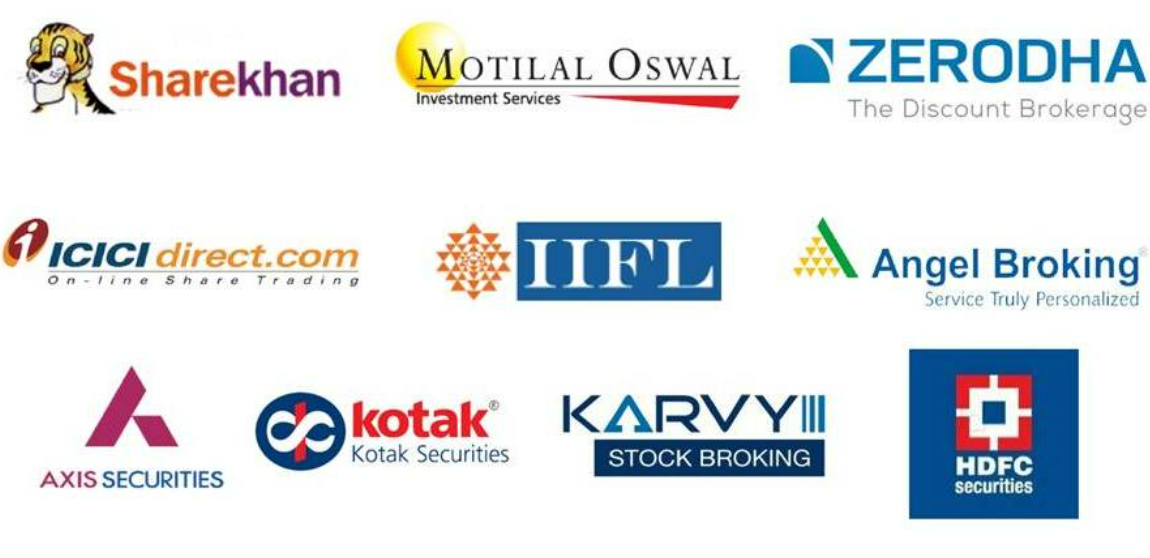How to Become a Commodity Broker in India: A Complete Guide

Strong 8k brings an ultra-HD IPTV experience to your living room and your pocket.
Commodity trading in India is an exciting and lucrative career choice for many. As the demand for trading in commodities such as gold, silver, oil, and agricultural products increases, becoming a commodity broker in India has become a promising venture. This article explores the step-by-step process of how to become a commodity broker in India, what it takes to succeed in this profession, and why understanding the top 10 MCX brokers in India is crucial for aspiring brokers.
What is a Commodity Broker?
A commodity broker acts as an intermediary between buyers and sellers in commodity markets. These brokers help clients buy and sell commodities such as metals, energy, and agricultural products. They offer advice, conduct research, and provide access to trading platforms, thus ensuring that trades are executed efficiently.
In India, the Multi Commodity Exchange of India (MCX) is the dominant platform for commodity trading, and brokers who are registered with the Securities and Exchange Board of India (SEBI) operate within the legal framework, offering a secure environment for trading.
Steps to Becoming a Commodity Broker in India
Becoming a commodity broker in India requires a blend of formal education, certification, and practical experience. The process can be broken down into the following steps:
1. Educational Qualifications
While there is no mandatory degree for becoming a commodity broker, having a background in finance, economics, or business management can be beneficial. A bachelor’s degree in commerce, economics, or business administration is a good starting point.
In addition, brokers should be well-versed in financial markets, trading, and the legal framework governing the commodity markets in India.
2. Work Experience in the Financial Sector
Before becoming a commodity broker, gaining experience in financial services is essential. You can work as a trader or an analyst at a brokerage firm to gain a better understanding of how commodity markets work. Having hands-on experience with trading platforms and market research is crucial for success.
3. Obtain a SEBI-Approved Certification
To legally become a commodity broker in India, you need to pass the certification exam administered by the National Institute of Securities Markets (NISM). This certification, known as the NISM-Series-XV: Regulatory Framework for Commodities Market certification, is a mandatory requirement for anyone aspiring to become a commodity broker.
This exam tests your knowledge about the commodity market, regulations, trading processes, and ethics in commodity trading.
4. Register with SEBI
After successfully obtaining the NISM certification, the next step is to register with the Securities and Exchange Board of India (SEBI). SEBI registration ensures that your trading activities are legal and that you comply with the regulations set for commodity trading.
To register as a commodity broker, you need to apply with SEBI, submit your documents, and pay the registration fees. Once your application is approved, you will be granted a license to operate as a commodity broker.
5. Set Up a Trading Platform
As a commodity broker, you need to have access to a trading platform. Many commodity brokers in India partner with trading platforms like MCX, NCDEX, or NSE to execute trades on behalf of their clients. You will need to choose a platform that provides the necessary tools for commodity trading, such as real-time market data, charting tools, and risk management features.
Additionally, brokers often provide their clients with research reports, analysis, and advice, which can be offered through proprietary platforms or third-party platforms.
6. Obtain Capital for Operations
Starting a brokerage business requires an initial investment. You will need capital for setting up infrastructure, purchasing software, hiring staff, and covering operational expenses. Most brokers also need to maintain a margin account with the exchange to execute trades on behalf of clients.
7. Compliance and Risk Management
Commodity brokers must ensure that they comply with all regulatory requirements laid out by SEBI. This includes maintaining proper records, filing reports, and adhering to tax laws. Additionally, you must have a risk management plan in place, as commodity markets are volatile.
8. Marketing Your Brokerage Firm
Once you're registered, certified, and ready to operate, the next challenge is to attract clients. Building a strong brand reputation is key to success. You can market your services through various channels, such as social media, word of mouth, and partnerships with investment advisors or financial planners.
Key Skills for a Successful Commodity Broker
Becoming a successful commodity broker requires certain key skills and qualities:
Analytical Skills: A broker must be able to interpret market trends, economic data, and commodity price movements.
Communication Skills: Since brokers advise clients, clear communication is crucial.
Problem-Solving Ability: Commodity markets are volatile, and brokers must be able to make quick decisions under pressure.
Attention to Detail: Brokers must be detail-oriented to avoid errors in trade execution or research.
Technical Proficiency: Familiarity with trading platforms and software is essential.
Best Brokers for Aspiring Commodity Brokers in India
While you are on your journey to becoming a commodity broker, understanding the landscape of existing top 10 MCX brokers in India can offer valuable insights. Here are some of the leading commodity brokers in India:
1. Zerodha
Zerodha is one of the largest and most popular brokers in India, known for its cost-effective brokerage fees and intuitive trading platforms. It offers a wide range of commodity trading services through MCX and provides useful research tools to assist brokers and traders.
2. Upstox
Upstox offers a simple and user-friendly platform for commodity trading. As a SEBI registered commodity broker, it provides low brokerage charges and comprehensive research tools.
3. Angel One
Formerly known as Angel Broking, Angel One is known for its high-quality customer service and advanced commodity trading tools. It is one of the best online commodity brokers in India.
4. ICICI Direct
ICICI Direct is a well-established broker with a comprehensive platform for commodity and equity trading. It offers great research and advisory services for brokers and traders.
5. Kotak Securities
Kotak Securities is a trusted name in India’s financial market, offering a robust platform for MCX and other commodity trading. The firm is known for its excellent research reports and reliable customer service.
6. Sharekhan
Sharekhan provides one of the most advanced trading platforms in India and is known for its excellent market research tools. It's a reliable choice for those interested in becoming a commodity broker in India.
7. HDFC Securities
HDFC Securities provides a secure and regulated trading environment, offering research, advisory, and trading tools to both brokers and traders.
8. 5Paisa
5Paisa is a discount broker offering low-cost trading with a focus on technology and ease of use. It’s one of the cheapest commodity brokers in India.
9. Motilal Oswal
Motilal Oswal offers premium trading tools and research, making it one of the best choices for brokers who want to provide top-quality services to their clients.
10. Fyers
Fyers is an emerging name in the Indian commodity brokerage market, offering low-cost trading and advanced tools.
Frequently Asked Questions (FAQs)
1. How much does it cost to become a commodity broker in India?
The cost of becoming a commodity broker in India depends on various factors, including the SEBI registration fee, certification costs, infrastructure setup, and operational expenses. A basic estimate could range from ₹2 to ₹5 lakh for small-scale operations.
2. What is the best commodity broker in India?
There are many top commodity brokers in India, including Zerodha, Upstox, and Angel One. The best commodity broker in India depends on your trading preferences, fees, platform features, and customer service.
3. Do I need a degree to become a commodity broker?
While a formal degree is not mandatory, having a background in finance, economics, or business can be advantageous. Certifications like the NISM Series XV are essential for legally becoming a commodity broker.
4. What is SEBI registered commodity brokers?
SEBI registered commodity brokers are brokers who are licensed and regulated by the Securities and Exchange Board of India. These brokers follow strict guidelines and offer a secure and transparent trading environment.
Conclusion
Becoming a commodity broker in India is a rewarding career, but it requires a combination of education, certification, and practical experience. By following the outlined steps and understanding the top 10 MCX brokers in India, aspiring brokers can make informed decisions and set themselves up for success. Always remember to work with SEBI registered commodity brokers to ensure that your trading activities are secure, legal, and transparent.
Note: IndiBlogHub features both user-submitted and editorial content. We do not verify third-party contributions. Read our Disclaimer and Privacy Policyfor details.





